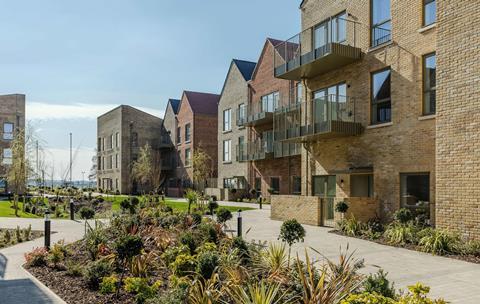Builder breaks billion mark for first time in normal reporting year
Profit is up 29% at Hill Group as the residential builder once again recorded more than £1bn in turnover.
Hill broke through the ten-figure mark in its annual results last year, posting revenue of £1.15bn, albeit for an extended reporting period of 15 months.

But in results for the year ended 31 March 2025, published this morning, the housebuilder revealed another increase in turnover - this time for the typical reporting period of 12 months.
Hill’s income for the period, including its share of joint venture income, stood at £1.16bn, while pre-tax profit also rose from £70.1m to £90.5.
The number of homes built in the year was marginally down from 2,886 to 2,811.
Andy Hill, founder and chief executive of Hill Group, said: “These results reflect the outstanding work of our people and partners in what remains a challenging market.
”To surpass our previous record in a twelve-month period is a fantastic achievement and a real credit to the strength of our business model, the quality of our homes, and the determination of everyone across the Group.
”As we report on our 25th year of business, I couldn’t be prouder of what we’ve accomplished together.”
The report said that the firm’s affordable housing business, Hill Partnerships, “outperformed expectations” in the year, particularly in London.
Hill also entered the build-to-rent market for the first time and exchanged contracts on two forward-funded agreements in Stevenage and, in joint venture with Peabody, in Dagenham.
>>See also: Hill Group establishes joint venture with cohousing developer
The builder has a development pipeline of 32,000 units, with 10,200 having planning and a further 1,500 in the short-term pipeline subject to planning.
The group spent £77.9m on new land and strategic options during the year and ended the year with net cash at £118.3m.
Looking to the year ahead, the report noted that Hill “may see some pressure on margins from the increase in Employers’ National Insurance filtering through to supply chain prices and from the expected introduction of the Building Safety Levy, both of which have been factored into our plans moving forwards”.








No comments yet